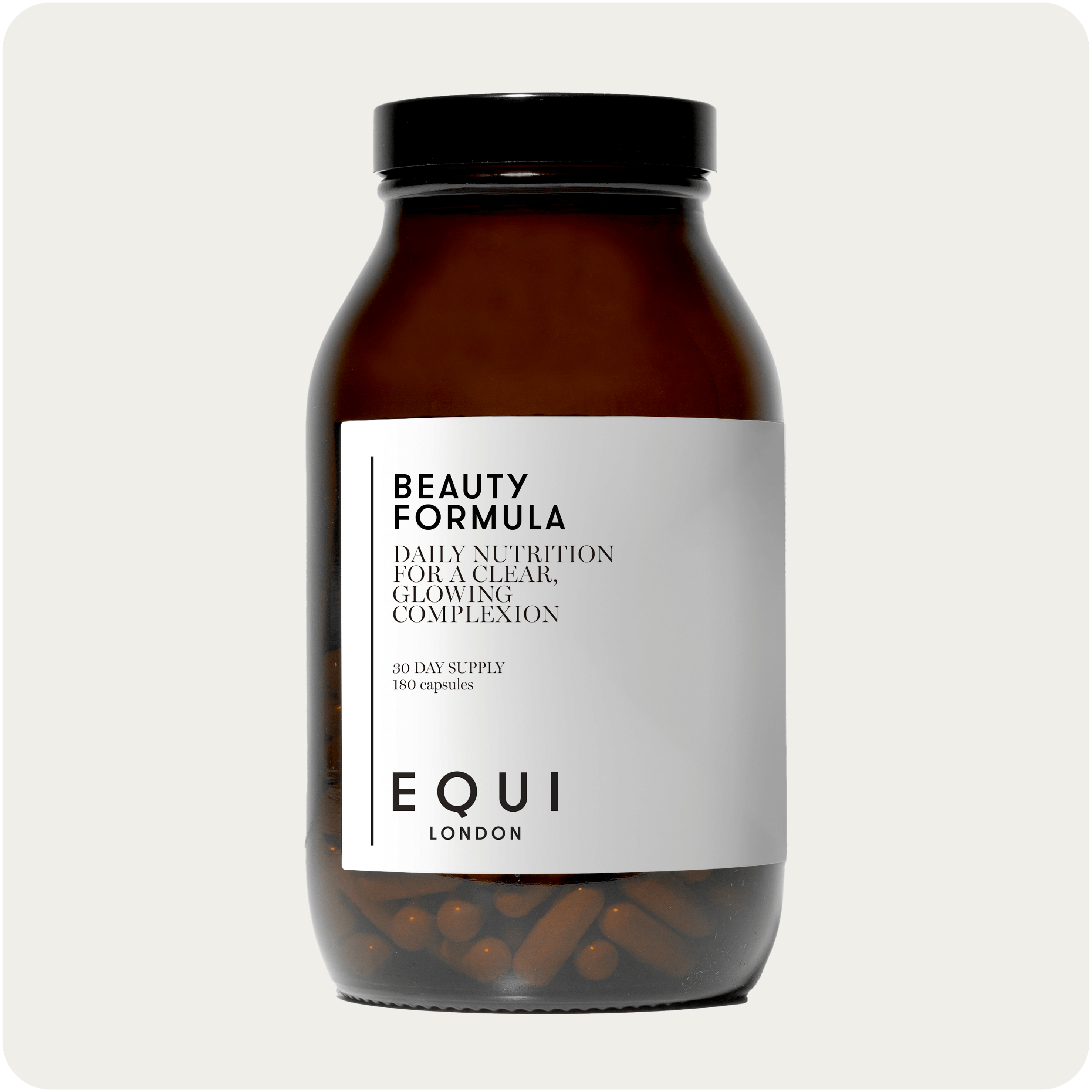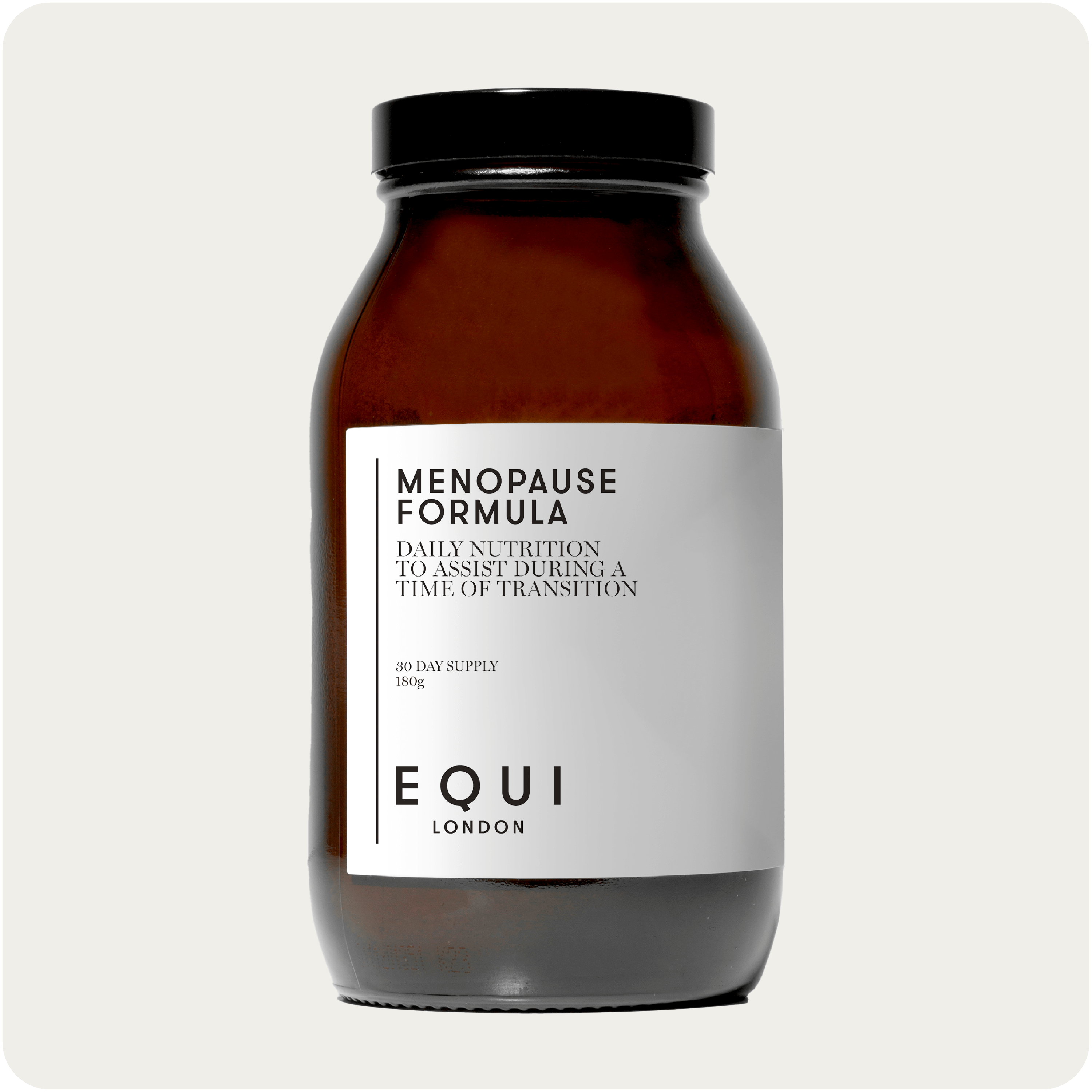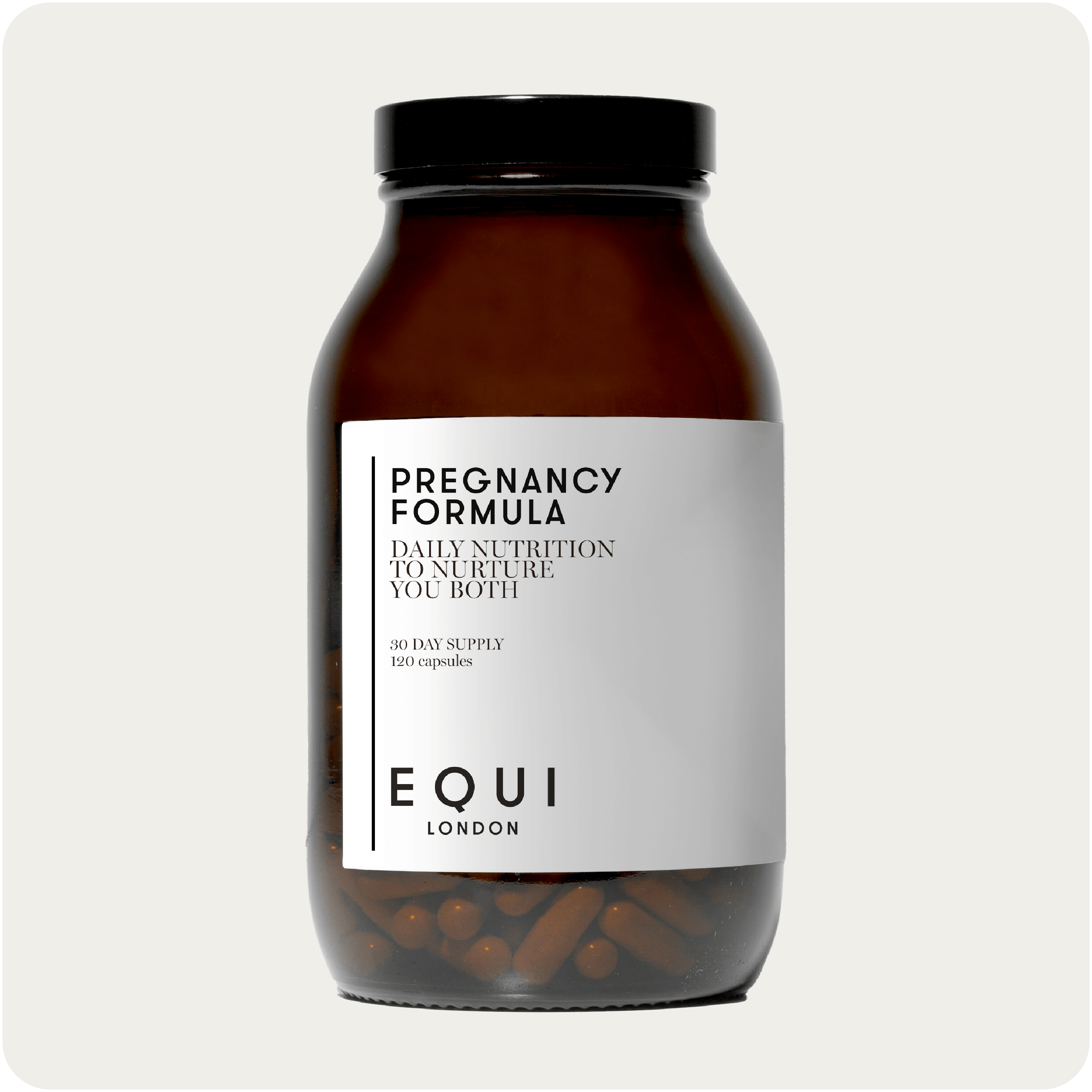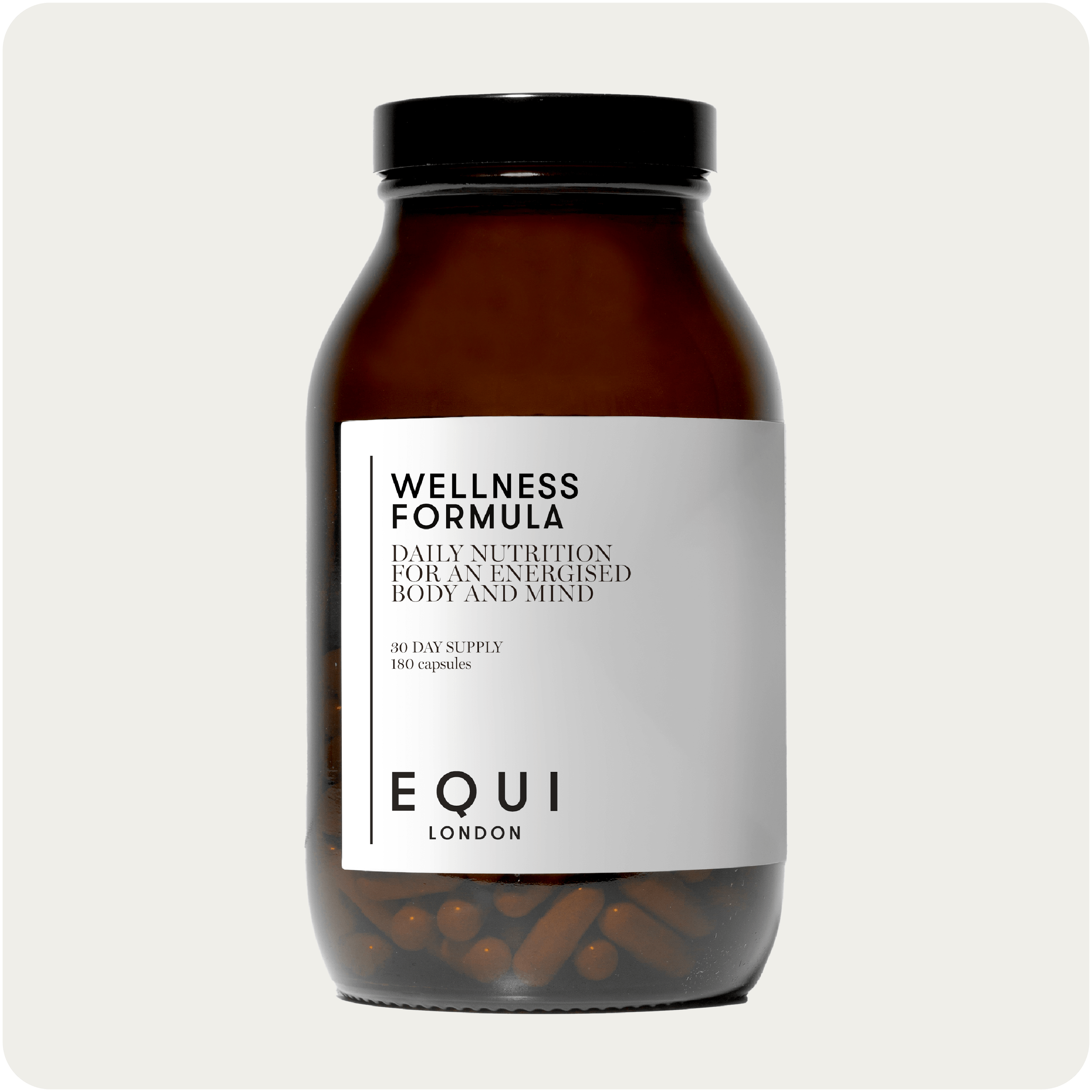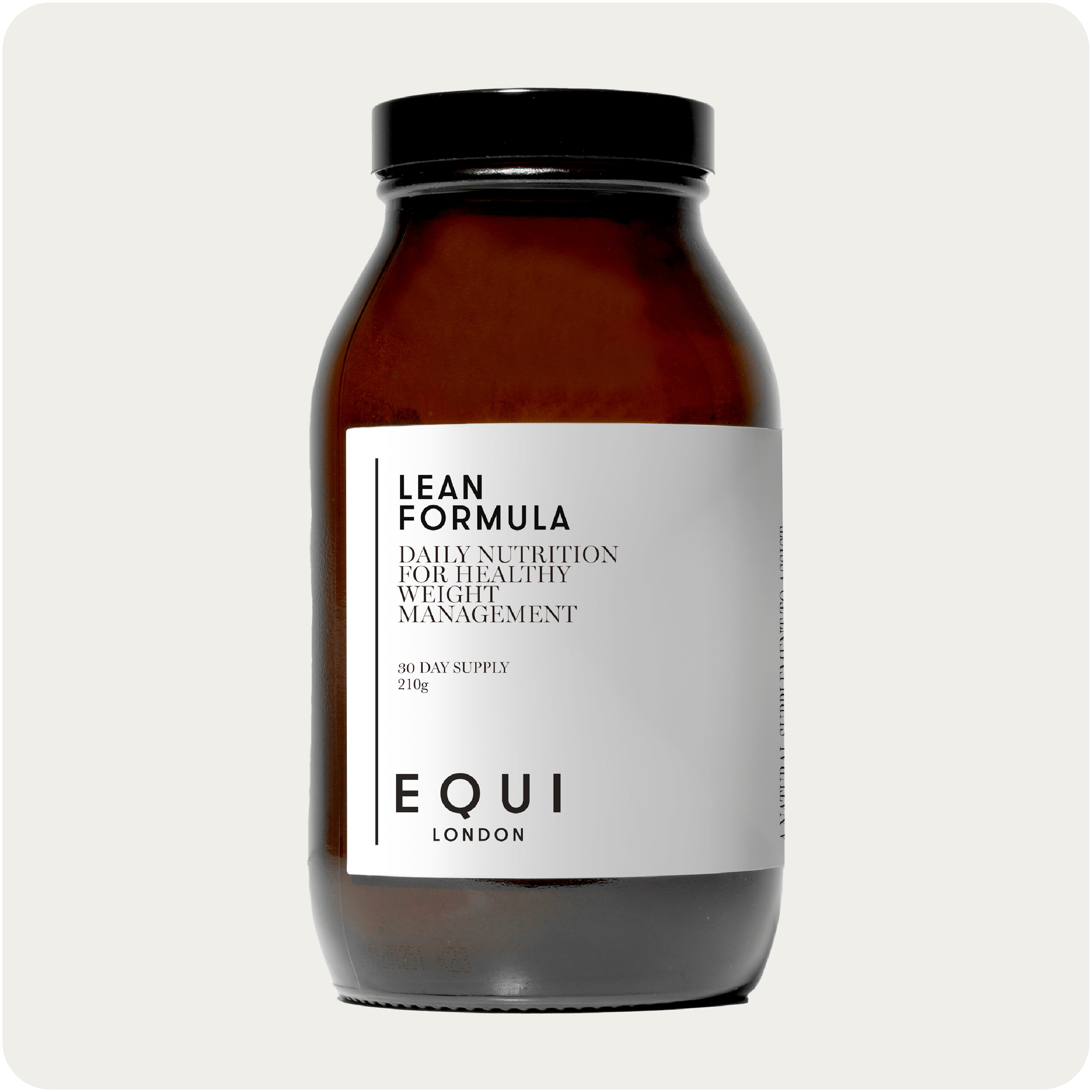Menopause is a natural transition in a woman's life, marking the end of her reproductive years. While it is more commonly associated with physical symptoms like hot flushes and night sweats, the emotional rollercoaster of menopause is one that can take us by surprise. In fact, menopause rage is one of the most surprising and misunderstood aspects of this journey. It is an intense and sudden anger that can catch both women and their loved ones off guard. In today’s blog, we aim to unravel the complexities of menopause rage, understanding its underlying causes, and exploring effective strategies for support and natural solutions. Drawing upon the expertise of Dr. Federica Amati, a renowned nutritionist and expert in women's health, who we spoke to about this often-overlooked menopausal symptom.
We will delve into the science behind menopause rage and offer actionable insights to help women navigate this challenging phase. Dr. Amati's extensive clinical experience sheds light on this less talked about psychological symptom of the menopause, emphasising the significant impact of hormonal fluctuations on mood and emotional well-being. Menopause rage is often attributed to fluctuating hormonal levels, particularly in oestrogen and progesterone, which both play a crucial role in regulating mood, serotonin levels and promoting a sense of calmness. Oestrogen controls how much serotonin (the happy hormone) is being produced in the brain. What’s more, as progesterone levels decrease during menopause, women may experience heightened emotional sensitivity and irritability, leading to sudden outbursts of anger. Understanding the hormonal imbalances underlying menopause rage is the first step towards effective management and support. Fortunately, there are natural ways to support oestrogen and progesterone levels and alleviate symptoms. We delve into supportive nutrients like herbs, adaptogens, phytoestrogens, vitamins, and minerals. These nutrients not only promote oestrogen balance and progesterone production but may also help regulate mood and reduce stress. Additionally, adopting stress management techniques such as mindfulness, meditation, and regular exercise can help restore hormonal balance and mitigate the intensity of rage episodes.
Support from partners and loved ones is equally essential in navigating the emotional challenges of menopause. Dr. Amati emphasises the importance of recognising signs of hormonal changes, including rage episodes, and offering compassionate support. We will build on this, offering you practical tips on how to navigate these changes. We aim to empower women and their partners with knowledge and practical tools to navigate menopause rage. By understanding the underlying causes, nurturing hormonal balance, and cultivating a supportive environment, we can embrace this phase of life with confidence. Join us on this journey as we explore the science behind menopause rage, share expert insights from Dr. Federica Amati, and offer actionable strategies for support and natural solutions.
What’s Behind Menopause Rage
Alice recently caught up with Dr Federica Amati PhD MPH RNutr, author of ‘Every BODY Should Know This’ and she shared her insights on menopause rage. She said:
“The more we do research on menopause symptoms and the more we see that there is a wide range of symptoms especially in terms of psychological symptoms of mid symptoms which many women are surprised by. One of the ones I find most interesting is rage. It seems that women going through the menopause have an increased likelihood of reporting an increase in rage episodes. For some women this is completely out of character and something they’ve never experienced before and for some women they have experienced it previously at other points of large hormonal fluctuations for example in puberty or postpartum. Rage is really typified by the sudden onset of this ‘red anger’ or some people say it’s like a mist falling and reacting to something that would normally not have caused such a reaction in a really big way.”
So, let’s take a closer look at why:
Menopause, though a natural phase in a woman's life, can be accompanied by a myriad of physical and psychological symptoms. Among these, menopause rage stands out as a particularly perplexing and often misunderstood phenomenon. Dr. Federica Amati, a distinguished nutritionist specialising in women's health, sheds light on the psychological complexities of menopause in her book, emphasising the profound impact of hormonal fluctuations on mood and emotional well-being.
During perimenopause, women undergo significant hormonal changes including a decline in oestrogen and progesterone levels. Oestrogen influences neurotransmitter activity in the brain, particularly of serotonin (our happy hormone) affecting mood regulation and emotional responses. The decline in oestrogen levels during menopause can lead to dysregulation of these neurotransmitter systems, potentially exacerbating mood disturbances such as anger and irritability (1). While fluctuating oestrogen is associated with this phase of life, progesterone is often overlooked, yet it plays a crucial role in regulating mood and promoting a sense of calmness. It is a decline in progesterone levels during menopause that contributes to the sudden onset of rage and other emotional disturbances (2). These hormonal fluctuations during menopause can lead to a range of psychological symptoms, including rage. In fact, one study found that up to 70% experience irritability during perimenopause (3). When progesterone, known for its calming effects, declines significantly during menopause, it can leave women more susceptible to mood swings, irritability and depression (4). Progesterone acts as a natural tranquiliser, binding to gamma-aminobutyric acid (GABA) receptors in the brain, which inhibits the excitatory neurotransmitters responsible for stress and anxiety. As progesterone levels decline, the delicate balance between excitatory and inhibitory neurotransmitters is disrupted, leading to increased emotional sensitivity and reactivity (5).
Menopause rage often manifests as sudden outbursts of intense anger, seemingly disproportionate to the triggering event. Women may find themselves reacting impulsively to situations that would have previously elicited little to no response. This "red anger," is a visceral and overwhelming emotion that can catch women off guard and leave them feeling out of control. Furthermore, the unpredictability of menopause rage can exacerbate feelings of confusion and distress. Women may struggle to reconcile these sudden mood swings with their usual demeanour, leading to a sense of alienation from themselves and their loved ones. For some women, they may have experienced this at other poignant times in their life such as during puberty, or postpartum. During puberty, hormonal fluctuations particularly in oestrogen and testosterone, can lead to mood swings and heightened emotional reactivity in girls (6). The surge in hormones may manifest as episodes of anger or irritability as their bodies adjust to these changes. Similarly, during postpartum, the sudden drop in oestrogen and progesterone levels after childbirth can contribute to mood disturbances, including feelings of anger or frustration, commonly referred to as postpartum rage (7).
While the decline in oestrogen and progesterone are primary contributors to menopause rage, other hormonal imbalances and external factors can also play a role. Fluctuations in cortisol, the body's primary stress hormone, can amplify feelings of irritability and exacerbate rage episodes. Additionally, sleep disturbances, which are common during menopause, can further disrupt mood regulation and increase susceptibility to emotional outbursts.
Supporting Hormonal Balance
Supporting hormone balance naturally during perimenopause and beyond is crucial for managing symptoms and promoting overall well-being. Several herbs and plant-based compounds have been studied for their potential to regulate hormonal activity and alleviate menopausal symptoms. Among these, sage extract, vitamin B6, and phytoestrogens stand out for their effectiveness. Sage Extract, derived from the herb Salvia officinalis, is another botanical remedy with potential benefits for menopausal symptoms. One study found that it supported neuro-receptors and serotonin levels in menopausal women (8). What’s more, sage has been found to help alleviate hot flashes and night sweats. Meanwhile, vitamin B6, a water-soluble vitamin found in foods like poultry, fish, bananas, and chickpeas, plays a crucial role in hormone metabolism and regulation. Vitamin B6 is involved in the synthesis of neurotransmitters like serotonin and dopamine, which influence mood and emotional well-being. Adequate intake of Vitamin B6 via supplementation may help alleviate symptoms of hormonal imbalance, including mood swings and irritability (9). In addition to herbs and vitamins, phytoestrogens are plant-based compounds that mimic the effects of oestrogen in the body. Flaxseed is rich in lignans, a type of phytoestrogen, which have been shown to bind to oestrogen receptors in the body, helping to modulate hormonal activity and alleviate menopausal symptoms (10). Other examples of phytoestrogens include soybeans, chickpeas, lentils, and red clover.
Supporting progesterone levels naturally through diet and lifestyle may also help manage some of the symptoms of menopause, including mood swings and irritability. Incorporating key nutrients like vitamin C and magnesium into your diet, along with implementing stress management techniques, can help promote progesterone production and maintain hormonal balance. Research has shown that certain nutrients can influence progesterone levels in the body. Vitamin C, for example, plays a vital role in the synthesis of steroid hormones, including progesterone. One study published found that Vitamin C supplementation significantly increased progesterone levels in women with luteal phase deficiency, a condition characterised by low progesterone levels (11). Including vitamin C-rich foods such as citrus fruits, peppers, berries, and broccoli in your diet can support progesterone production.
Finally, magnesium is essential for over 300 enzymatic processes in the body, including energy metabolism. Studies have found that magnesium supplementation may help alleviate some of the depressive symptoms of perimenopause (12). Magnesium-rich foods like leafy greens, nuts, seeds, and whole grains should be incorporated into your daily meals to support progesterone production and overall hormonal health.
Incorporating foods and nutrients into your daily meals that support hormone balance can be simple and delicious. For example, start your day with a nutritious breakfast bowl containing Greek yoghurt, berries, nuts, and seeds for a dose of Vitamin C, magnesium, and B6. Snack on citrus fruits, like oranges or grapefruits, throughout the day to further boost your Vitamin C intake. For lunch and dinner, focus on incorporating leafy greens, whole grains, and lean proteins to provide essential nutrients for hormonal balance. By incorporating these foods into your diet, it may help to support hormone production and hormonal balance during menopause.
Menopause Formula contains over 45 premium, bio-available nutrients including sage extract, flaxseed extract, a B-complex, vitamin C and magnesium, to boost & balance the female body during a time of transition. It aims to soothes peri-menopausal & menopausal symptoms, supports hormone fluctuations, enhances energy and less fatigue, improve focus, memory, mood, sleep, gut health, and detoxification. Shop Menopause Formula here.
Stress Management
Stress management plays a pivotal role in managing menopause rage, as chronic stress can exacerbate mood disturbances and contribute to hormonal imbalances. During menopause, hormonal fluctuations, particularly the decline in oestrogen and progesterone levels, can leave women more susceptible to stress-induced mood swings and irritability. Understanding the connection between stress and hormonal balance is crucial for effectively managing menopause rage. Research has demonstrated that stress can impact hormone levels, including progesterone. Chronic stress triggers the release of cortisol, the body's primary stress hormone, which can disrupt the delicate balance of hormones involved in mood regulation, including progesterone. What’s more, one study found that early perimenopausal women experienced the highest level of stress and were more severely bothered by feelings of depression and anxiety, with the poorest overall self-reported psychosocial quality of life (13). Stress can influence our emotional responses, causing us to react more quickly and intensely to triggering events. When under stress, the brain's amygdala, responsible for processing emotions, becomes hyperactive, leading to heightened emotional reactivity. This heightened emotional response can manifest as menopause rage, where women experience sudden outbursts of intense anger that may seem disproportionate to the triggering event.
In addition to traditional stress management techniques like meditation, yoga, and deep breathing exercises, adaptogens can be valuable allies in managing stress during menopause. Adaptogens are natural substances that help the body adapt to stress and restore balance. KSM66® ashwagandha and rhodiola are two adaptogens that have been scientifically proven to boost mood, improve sleep, and reduce anxiety, making them ideal additions to Menopause Formula. Ashwagandha, a traditional Ayurvedic herb, has been shown to reduce cortisol levels and promote a sense of calmness and relaxation. Research has found that Ashwagandha supplementation significantly reduced stress and anxiety levels in adults (14). Similarly, Rhodiola, an adaptogenic herb native to the Arctic regions, has been shown to enhance mood and alleviate symptoms of stress and anxiety. A study concluded that Rhodiola supplementation was effective in reducing symptoms of stress and fatigue, improving mood and overall well-being (15).
The combination of KSM66® Ashwagandha and Rhodiola in Menopause Formula can provide comprehensive support for managing stress during this transitional phase. By restoring adrenal function and promoting a sense of calmness and relaxation, these adaptogens can help alleviate menopause rage and improve overall emotional well-being. Shop Menopause Formula here.
Supporting Women Through Menopause
When we spoke with Dr Federica Amati, she highlighted the importance of raising awareness of menopause rage so that women can seek help and their partners can offer support. Here’s what Dr Amati had to say:
“I think it's really helpful for women to be aware that an increased amount of these episodes could be a sign that that hormones are changing and there are ways to seek help and to help mitigate this happening. For those men reading this in the blog then be aware that you can help support your partner if you if you notice that there are some real changes including rage and there's plenty of books on the market now that I can help to educate on how to support women best. I love ‘Menopausing’ by Davina McCall which is a really good example of that”.
In light of this, here are five things’ partners can do to offer support to women struggling with menopause rage:
Educate Yourself - Take the time to educate yourself about menopause and its associated symptoms, including menopause rage. Understanding the physiological and emotional changes that women may experience during this time can help you offer more informed and empathetic support.
Communicate Openly - Create a safe and supportive environment for open communication with your partner about her experiences with menopause. Encourage her to express her feelings and concerns, and actively listen without judgment. Validate her experiences and reassure her that she is not alone in navigating this transition.
Offer Practical Support - Help alleviate stress and support your partner's well-being by offering practical assistance with household chores, childcare responsibilities, or other daily tasks. By sharing the load and easing her burdens, you can help reduce feelings of overwhelm and frustration.
Be Patient and Understanding - Menopause can be a challenging and unpredictable journey, and patience is key. Be understanding of your partner's mood swings and emotional fluctuations, recognising that they are often beyond her control. Practice empathy and compassion, and refrain from taking her mood changes personally.
Encourage Self-Care - Encourage your partner to prioritise self-care and prioritise activities that promote relaxation, stress relief, and emotional well-being. Suggest activities like yoga, meditation, or leisurely walks in nature, and offer to participate together. Supporting her self-care efforts can help her better cope with menopause rage and other symptoms.
With thanks to Dr Federica Amati for her comments to support this blog topic. Do check out her book here – Every BODY Should Know This. Dr Fede’s approach focuses on improving overall dietary quality following the principles of evidence based, personalised nutrition science for health and disease prevention throughout the lifecourse. Dr Federica Amati holds a PhD in Clinical Medicine Research from Imperial Collge London, has a masters in Public Health and is an Association for Nutrition (AfN) Registered Nutritionist (RNutr).
Disclaimer: All of the information on this website is provided for general information only, it should not be treated as a substitute for the medical advice of your own doctor or any other health care professional providing personalised nutrition or lifestyle advice. If you have any concerns about your general health, you should contact your local health care provider. No one diet or supplement regime works for everyone and you should always seek help from a GP and registered health expert before making changes to your diet, or before introducing any supplements. This is especially important when pregnant.
References
- Amin Z, Canli T, Epperson CN. Effect of estrogen-serotonin interactions on mood and cognition. Behav Cogn Neurosci Rev. 2005 Mar;4(1):, pp. 43-58.
- Standeven LR, McEvoy KO, Osborne LM. Progesterone, reproduction, and psychiatric illness. Best Pract Res Clin Obstet Gynaecol. 2020 Nov;69, pp. 108-126.
- Born L, Koren G, Lin E, Steiner M. A new, female-specific irritability rating scale. J Psychiatry Neurosci. 2008 Jul;33(4), pp. 344-54.
- Joffe H, de Wit A, Coborn J, Crawford S, Freeman M, Wiley A, Athappilly G, Kim S, Sullivan KA, Cohen LS, Hall JE. Impact of Estradiol Variability and Progesterone on Mood in Perimenopausal Women With Depressive Symptoms. J Clin Endocrinol Metab. 2020 Mar 1;105(3):e642–50.
- Barth C, Villringer A, Sacher J. Sex hormones affect neurotransmitters and shape the adult female brain during hormonal transition periods. Front Neurosci. 2015 Feb 20;9, pp. 37.
- Peper JS, Dahl RE. Surging Hormones: Brain-Behavior Interactions During Puberty. Curr Dir Psychol Sci. 2013 Apr;22(2), pp. 134-139.
- Trifu S, Vladuti A, Popescu A. THE NEUROENDOCRINOLOGICAL ASPECTS OF PREGNANCY AND POSTPARTUM DEPRESSION. Acta Endocrinol (Buchar). 2019 Jul-Sep;15(3), pp. 410-415.
- Tober C, Schoop R. Modulation of neurological pathways by Salvia officinalis and its dependence on manufacturing process and plant parts used. BMC Complement Altern Med. 2019 Jun 13;19(1):128. Pruessner, J. C., Hellhammer, D. H., & Kirschbaum, C. (1999). Low self-esteem, induced failure and the adrenocortical stress response. Journal of Psychosomatic Research, 46(6),pp. 591–598.
- Williams AL, Cotter A, Sabina A, Girard C, Goodman J, Katz DL. The role for vitamin B-6 as treatment for depression: a systematic review. Fam Pract. 2005 Oct;22(5), pp. 532-7.
- Jang WY, Kim MY, Cho JY. Antioxidant, Anti-Inflammatory, Anti-Menopausal, and Anti-Cancer Effects of Lignans and Their Metabolites. Int J Mol Sci. 2022 Dec 7;23(24), pp. 15482.
- Henmi, H et al. Effects of ascorbic acid supplementation on serum progesterone levels in patients with a luteal phase defect. Fertility and Sterility. 80 (2). pp. 459-461.
- Bromberger JT, Epperson CN. Depression During and After the Perimenopause: Impact of Hormones, Genetics, and Environmental Determinants of Disease. Obstet Gynecol Clin North Am. 2018 Dec;45(4), pp. 663-678.
- Kuck, M.J & Hogervorst, E. Stress, depression, and anxiety: psychological complaints across menopausal stages, Frontiers in Psychiatry, 2023, 15.
- Chandrasekhar K, Kapoor J, Anishetty S. A prospective, randomized double-blind, placebo-controlled study of safety and efficacy of a high-concentration full-spectrum extract of ashwagandha root in reducing stress and anxiety in adults. Indian J Psychol Med. 2012 Jul;34(3), pp. 255-62.
- Ivanova Stojcheva E, Quintela JC. The Effectiveness of Rhodiola rosea L. Preparations in Alleviating Various Aspects of Life-Stress Symptoms and Stress-Induced Conditions-Encouraging Clinical Evidence. Molecules. 2022 Jun 17;27(12), p.3902.
